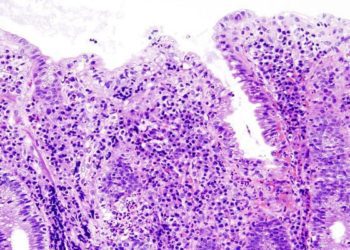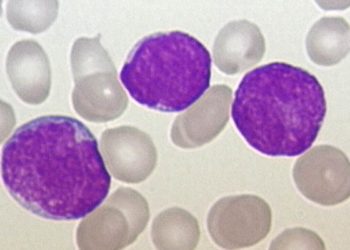Family-support intervention does not significantly improve surrogates’ psychological symptoms: The PARTNER trial
1. Family-support intervention delivered by an interprofessional intensive care unit (ICU) team did not significantly reduce anxiety and depression among surrogates of critically ill patients.
2. Surrogates and families in the family-support intervention group were more likely to report improved clinician-family communication and better patient-centered care, and also had a significantly reduced length of hospital and ICU stay compared to control.
Evidence Rating Level: 1 (Excellent)
Study Rundown: Surrogate decision makers are often required to assist with medical decisions for patients who lack decisional capacity and do not have an advanced directive. High rates of depression, anxiety, and post-traumatic stress disorder (PTSD) have been associated with this role, largely due to high stress and unfamiliarity with the medical environment. Partnering strategies with family members has been shown to reduce these symptoms, however, the best method of apply partnering strategies is unknown. This study assessed the efficacy of the interprofessional family-support program PARTNER (Pairing Re-engineered ICU Teams with Nurse-driven Emotional Support and Relationship-building), designed to reduce long-term psychological symptoms of surrogate decision makers and improve clinician-family communication. The primary outcome, surrogates’ symptoms of anxiety and depression 6 months after the patient’s hospital discharge, demonstrated no significant difference between the intervention and control group. There was a significant improvement in surrogates’ clinician-family communication rating, surrogates’ rating of patient- and family-centeredness of care, and decrease in mean length of ICU stay associated with the intervention group.
This was a multicenter, cluster-randomized trial based on a family-support intervention. The intervention is low cost and used the existing interprofessional ICU team, and is thus a feasible intervention across a wide range of hospitals. Limitations include the sample restriction to one geographical region and imbalances between treatment groups at baseline. The significant secondary outcomes support additional investigation into medical communication and support strategies.
Click to read the study, published in NEJM
In-Depth [randomized controlled trial]: This was a cluster-randomized trial of 1106 surrogate decision makers that compared a multicomponent family-support intervention delivered by the interprofessional ICU team (n = 429) with usual care (n = 677) in five ICUs within one academic medical system. The intervention involved advanced communication training for nurses, institution of a family-support pathway, and implementation support by a quality-improvement specialist. The primary outcome was the surrogates’ symptoms of anxiety and depression 6 months after patient hospital discharge. Secondary outcomes included surrogates’ symptoms of PTSD, surrogates’ rating of quality of clinician-family communication, surrogates’ rating of patient- and family-centeredness of care, and the mean length of hospital and ICU stay.
The intervention group had an older mean age and higher severity of acute illness and number of chronic co-morbidities compared to the control group. After adjustment for baseline differences, there was no significant difference in the mean score for anxiety and depression (HADS score) at 6 months in the intervention group versus control group (11.7 versus 12.0, respectively; beta coefficient for estimated effect of intervention, -0.34; 95% confidence interval [CI], -1.67 to 0.99; p = 0.61). No significant difference was found between surrogates’ symptoms of PTSD (21.2 versus 20.3, respectively; beta coefficient, 0.90; 95% CI, -1.66 to 3.47; p = 0.49). There was a significant increase in surrogates’ rating of clinician-family communication in the intervention group compared to the control group (mean QOC score, 69.1 vs. 62.7; beta coefficient, 6.39; 95% CI, 2.57 to 10.20; p = 0.001) and rating of patient- and family-centeredness of care (PPPC score, 1.7 vs. 1.8; beta coefficient, -0.15; 95% CI, -0.26 to -0.04; p = 0.006). The mean length of ICU stay was significantly shorter in the intervention group than in the control group (6.7 days versus 7.4 days; incidence rate ratio, 0.90; 95% CI, 0.81 to 1.00; p = 0.045) and overall hospital stay (10.4 days versus 13.5 days; incidence rate ratio, 0.77; 95% CI, 0.69 to 0.87; p < 0.001).
Image: PD
©2018 2 Minute Medicine, Inc. All rights reserved. No works may be reproduced without expressed written consent from 2 Minute Medicine, Inc. Inquire about licensing here. No article should be construed as medical advice and is not intended as such by the authors or by 2 Minute Medicine, Inc.









